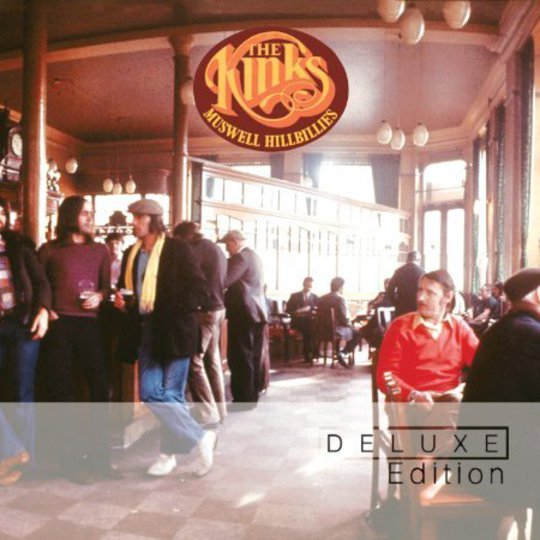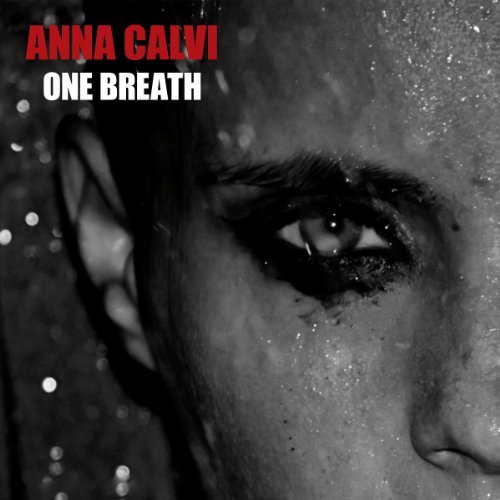There may never be a more unique and enduring British band than The Kinks. The Davies’ brothers steered their way through the peaks and troughs of more than 30 years of blazing successes, abysmal failures, lurching stylistic changes, hero worship, self-indulgence and drug-fuelled violence before splitting after Dave Davies’ 50th birthday party held at the pub in which they had staged their first ever gig. Throughout the distinct eras of the Londoners’ rollercoaster history one overriding facet has been the risen feature of their existence: the unparalleled songwriting prowess of Ray Davies.
At the tail end of the band’s ‘golden age’ came Muswell Hillbillies, here re-issued with an entire disc of demos, live recordings and previously unreleased material. Ray had already written the likes of ‘Waterloo Sunset’, ‘Days’, ‘Autumn Almanac’, and ‘Lola’ at this juncture and would soon throw in the towel on working class lament to unleash his long subjugated urge to turn the band into a sort of travelling music hall troupe; ahead would also lie the more languid excellence of ‘Celluloid Heroes’, ‘Rock n Roll Fantasy’, ‘Come Dancing’ and 1991’s underrated ‘Scattered’.
Here though the focus was not on crafting individual hits – Hillbillies would have none – but on voicing the frustration felt by the working class of Britain as the country slid further into poverty and attachments to a perceived halcyon age of London (in Davies’ eyes - the world) were severed by a rise in building developments that separated established communities. The album itself is, as the title suggests, a journey through very English themes delivered through the medium of Americana; conversely a dream of an imagined America through the tight-clenched eyes of a battered, grimy Britain.
How incredibly well-trained Davies’ focus here is - it's one of the aspects that makes this such a remarkable record. It’s dystopian outlook is relentless, precise and explored from many aspects, through the eyes of many characters; most importantly it’s depicted through a set of songs of intuitive melody and addictive tunefulness that sink and settle in the mind as deeply as any of the band’s iconic hits.
There are straight out stunning songs here like the frantic anti-establishment plea of opener ‘20th Century Man’. “Got no privacy/Got no liberty” Davies wails – yet you get the sense our protagonist has no real hope of escape. The best that can be done is to document the times. It’s a similar story on it’s partner piece ‘Here Come The People In Grey’, a twelve bar blues that musically foreshadows ‘Apeman’, in which Davies’ hero wishes to fight “a one man revolution” but of course “Here come the people in grey to take me away”. There’s no chance of a happy ending for the individual in this landscape.
More chilling is the lilting, delicious ‘Holiday’, sung in a variety of tones and exaggerated voices by Ray emphasising the hideousness of the titular trip that on one hand he praises with “Oh what a lovely day today”, on the other listing the results of his vacation – “…my back burned rare / The salt gets in my blisters and the sand gets in my hair / And the sea’s an open sewer / But really I couldn’t care…”. It may appear to be about pollution but it describes the crumbling illusion of Albion almost perfectly – this is a world where even what would appear to be a moment of respite can turn into a banal form of torture.
It also sounds like the work of someone on the verge, perhaps, of mental collapse so entrenched is it’s paranoia, and this rears up further on the savage ‘Complicated Life’ which veers from the white-collar panic attack of the first verse (“You gott slow down your life or you’re gonna be dead”) to the dilemmas facing the man who now “can’t go to work ‘cos I can’t get a job”. Davies delivers one of his bleakest lines here in his jauntiest cowboy voice – “Life is overrated, life is complicated”. All set to a steel pedal drenched, organ driven slowdance that could have fallen from the grooves of ‘Songs From The Big Pink’.
The madness is made most explicit on ‘Acute Schizophrenia Paranoia Blues’, a shambling circus waddle that grinningly echoes Dylan (“The woman next door is undercover for the KGB / And the man from the Social Security is invading my privacy”). Yet it seems that maybe this disease is no disease at all – simply a normal reaction to the trials of modern life. “I can’t make decisions / I don’t know which way I’m gonna turn” goes the eternal existential cry backed with an improper piano jingle and an anthemic chorus. Despite the horror, Ray’s grin still glints.
Perhaps the most wonderfully realised twin moments of the record are when it diverges from the English lyrics/American music concept and allows the two streams to truly intermingle. ‘Oklahoma USA’, recently resurrected on Davies solo tours, is the kind of piano ballad Wilco would chance upon thirty years later (indeed there’s a case to be made for Yankee Hotel Foxtrot, along with OK Computer and the rather more obvious Modern Life Is Rubbish being direct descendents of this album), a tale of a woman’s desire to escape to the America of her imagination, one she’s never visited, one, it implies, she never will. Two and a half minutes of glancing beauty, it contains another of Davies’ finest, most thought provoking lines “All life we work but work is a bore / If life’s for living what’s living for?”
It’s companion serves as the climax of the record, ‘Muswell Hillbilly’ in which Davies himself, rather than some character or cipher, is finally present pleading “Take me back to the black hills / That I ain’t never seen”, then resolutely, confusedly crying “They can clear the slums as part of their solution / But they’re never gonna kill my cockney pride / ‘Cos I’m a Muswell Hillbilly boy”. It’s a statement that ties up the threads of the album effectively despite seeming contradictory. In fact it’s contrariness would seem to perfectly depict Davies’ complex feelings toward national identity at this time – the hilarious, knowing mockery of ‘Have a Cuppa Tea’ would only seem to reinforce this.
The additions to this deluxe double disc package are well worth investigation and indeed, several of the tracks stand up to closer scrutiny. ‘Lavender Lane’ a very close cousin to ‘Waterloo Sunset’ which has only ever appeared on the quickly deleted ‘Great Lost Kinks Album’ in ’73 is a great little tune and unlike the ‘lost songs’ so often dug up to justify reissues (I’m looking at you Nirvana) it actually has substance.
As does the glorious ‘Nobody’s Fool’ a rare Dave Davies lead vocal originally released under the band name Cold Turkey as the theme song for seventies show ‘Budgie’, baring similarites to his self-penned 2010 single ‘Flowers In The Rain’ it’s fragile, lachrymose, it’s wonderful.
Elswhere on disc 2 are a selection of Peel Session live tracks (including a version of ‘Holiday’ where Ray seems to be trying to channel the voice of Marilyn Monroe), some raw studio takes that overflow with character and the odd bit of filler. Perhaps the real highlights are the proto T-Rex glory of a live take on ‘Skin and Bone’ and a song named ‘Kentucky Moon’ which in retrospect seems a baffling choice to leave off the tracklisting of the record proper so tied in is it with the album’s concerns.
Ultimately what’s on offer here is a one of the truly great albums in rock n’ roll history – nuanced, intelligent, loaded with thought and meaning, ripe with almost effortless musical excellence – backed with an extra disc that will delight fans and, if you’re using the album as a gateway drug, your interest perhaps sparked by recent reunion rumours, will eventually serve as compelling context for newcomers. It’s always been down to Davies’ songwriting, that’s for absolutely sure, but away from the hits and to one side of the anthems lay albums like this one – approaching perfection even when dealing solely with the idea of a world that, for Davies, was lurching far away from the idyll he held in his mind’s eye.
“Liberals dream of equal rights / Conservatives live in a world gone by / Socialists preach of a promised land / But old Uncle Son was an ordinary man” he sings of his Uncle Son in the song of the same name. Davies’ frustration and discontent with the world in 1971 seem depressingly relevant in 2013, a further reason to value this record so highly.
-
10Matthew Slaughter's Score






















